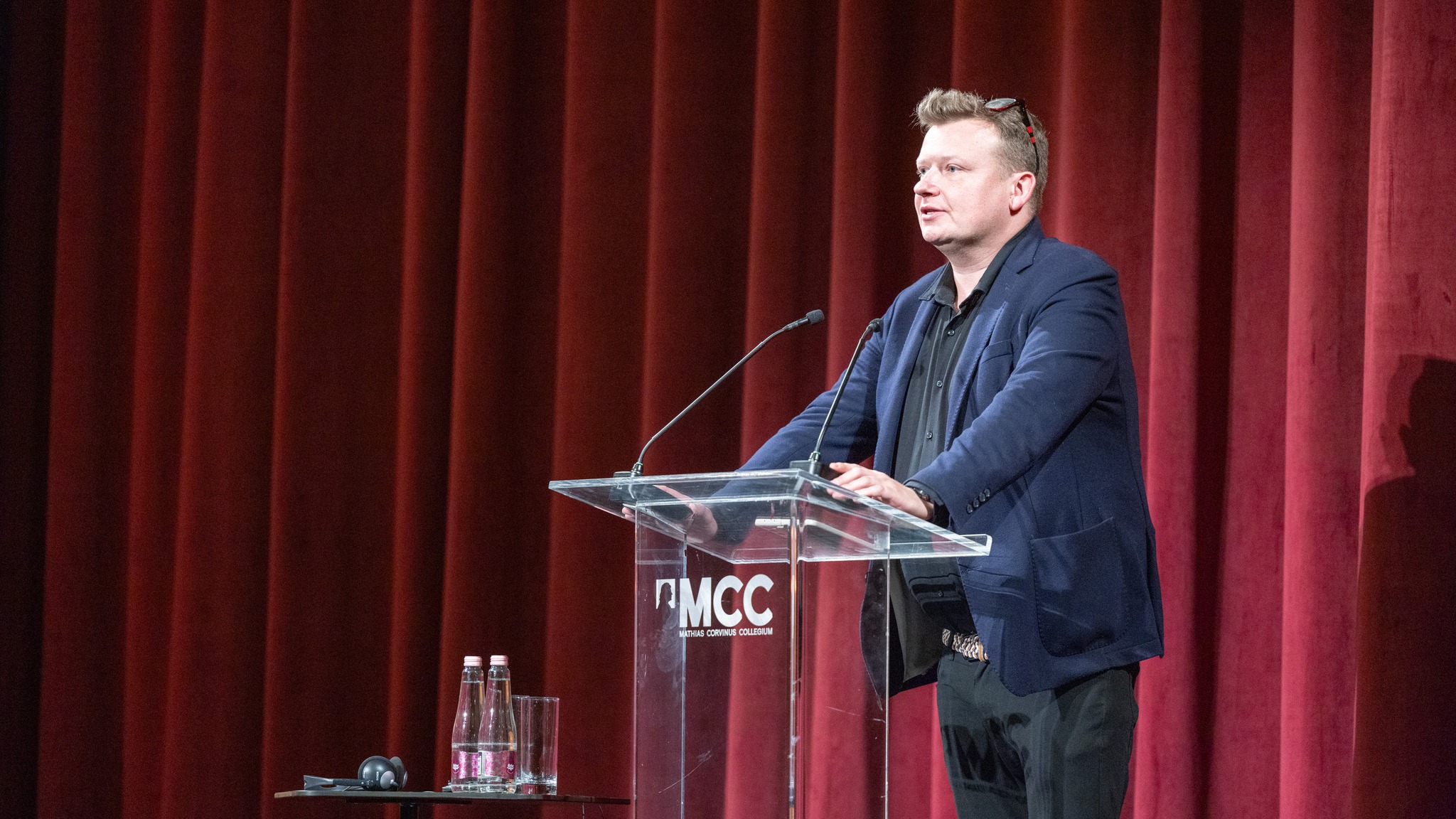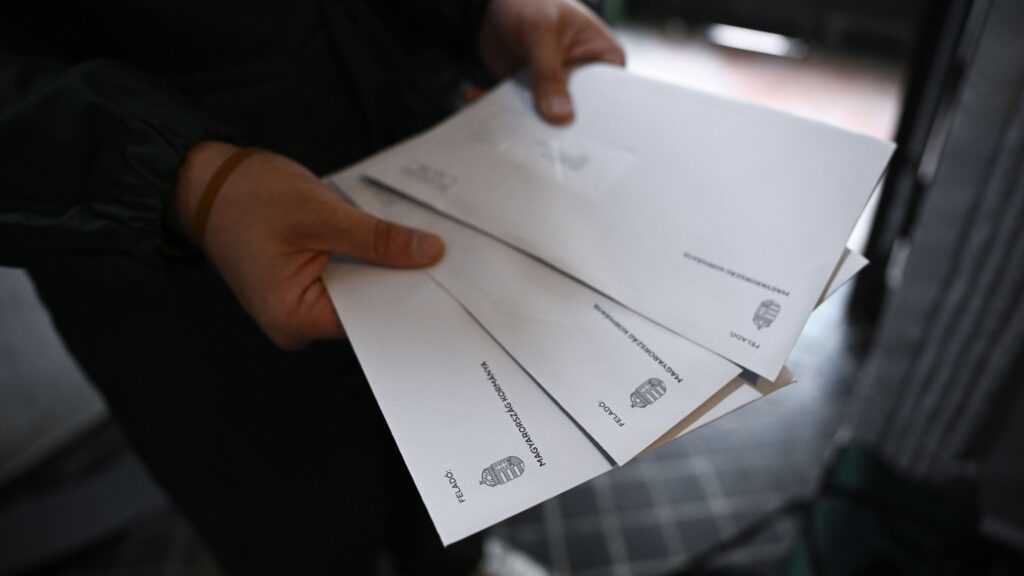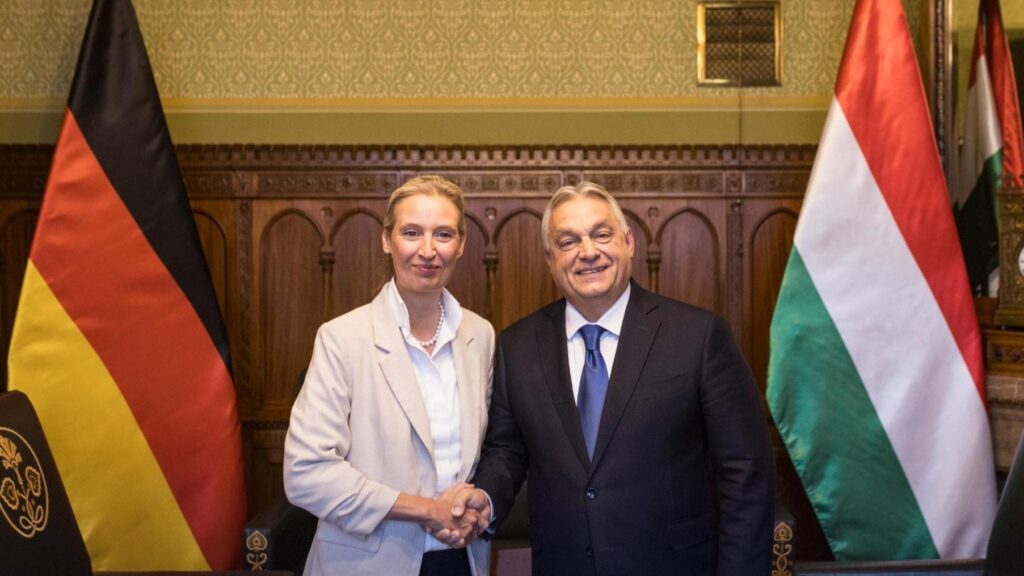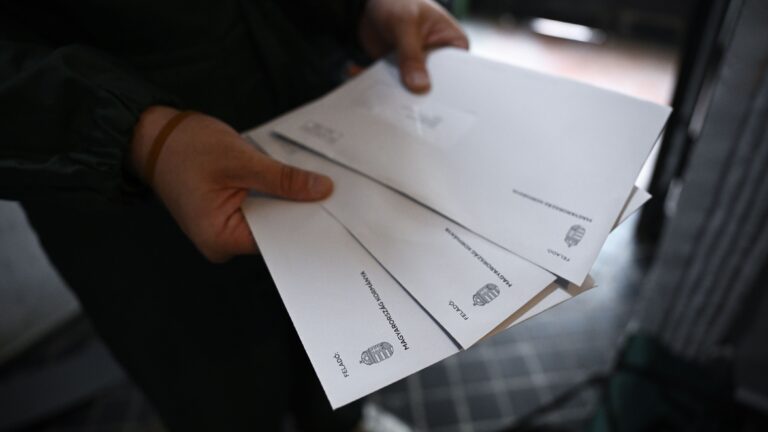Marcin Tulicki’s documentary on Donald Tusk’s takeover of the state media in Poland premiered at the Uránia National Film Theatre in Budapest, Hungary, on Monday, 27 October. Titled Taking Over, the film takes viewers back to December 2023, when Tusk, immediately after coming to power, launched a forceful intervention in the state media, using police to install his allies, halting broadcasts, and restructuring the organization.
Through interviews and archival footage, the documentary shows how Tusk has targeted the opposition Law and Justice (PiS) party, arresting former ministers and MPs, and taking control of public broadcasters and the prosecutor’s office.
Before the screening, Tulicki addressed the audience, saying that it was a ‘huge honour’ to be speaking in front of a full house at the premiere. He emphasized that he was not only a viewer but a participant in the events of December 2023: at the time, he served as deputy director of the Telewizja Polska (TVP) news agency. He said he immediately understood that the documentary had to be made. Tulicki explained that the situation in Poland has since deteriorated further, with the state media being only the first target of what he described as Tusk’s political vendetta, followed by the judiciary and civil servants. ‘My wish for you is that you may never have to experience these kinds of events here in Hungary,’ Tulicki concluded.
Following the screening, a panel discussion was held with Minister leading the Prime Minister’s Office Gergely Gulyás and former Polish Justice Minister Zbigniew Ziobro. Opening the discussion, Ziobro expressed his gratitude to Hungary for granting political asylum to his former deputy, Marcin Romanowski, who is currently facing a politically motivated prosecution in Poland.
Regarding the asylum, Gulyás stressed that Budapest draws a clear distinction between migration and political refuge. ‘It is one thing to come for a better life, and another to flee political persecution,’ he said. He added that Hungarian authorities apply the same legal criteria to all cases, but acknowledged that it is a ‘better feeling’ to grant protection to those with whom Hungary shares political and strategic perspectives.
Gulyás argued that recent actions by the Polish government, including the sidelining of prosecutors and judges and the disregard for court rulings, show that the foundations of the rule of law have been undermined. He noted that EU treaties do not prohibit granting asylum to someone from another EU member state. He contrasted the matter with illegal migration, stating that ‘who is a migrant and who is a political refugee are two very different questions.’
Pseudo Rule of Law
The minister also criticized the European Commission, arguing that debates over the rule of law in Brussels are driven not by legal principle but by political alignment. ‘The law has no normative content; it is a political tool, and therefore anything can be done,’ he said. According to Gulyás, EU funding is conditioned not on respect for democratic norms but on whether a government supports what he described as Commission President Ursula von der Leyen’s agenda and the ‘terrible vision of a United States of Europe’. He claimed that governments aligned with Brussels can ‘trample the basic principles of the rule of law and still receive every euro’, citing the Tusk government as an example.
Ziobro argued that Tusk’s model of governance represents what he called a ‘pseudo rule of law’, in which political power overrides judicial independence. He pointed to public statements in which Tusk said that restoring the rule of law could not be achieved ‘in a civilized manner’ and that his government might need to act in ways ‘not fully compliant with the law’. Ziobro claimed this amounted to a deliberate strategy of subordinating legal norms to political objectives.
‘The law has no normative content; it is a political tool, and therefore anything can be done’
He characterized Tusk as ‘a politician held on a Brussels leash and directed from Berlin’, implementing what he described as ‘fighting democracy’, in which legal constraints are broken to pursue political aims. He added that this authoritarian style is occurring ‘in front of the eyes of the European Union, which supports it’.
Gulyás said developments in Poland should be understood separately from other intra-EU disputes. While the concept of the rule of law is not mathematically precise, he stressed that certain constitutional principles cannot be overridden by simple parliamentary resolutions, which he accused the Polish government of doing. He said that the film is important because ‘images also have power’ and shows the return of practices many had hoped would disappear after 1990.
The Future of V4
On future Polish–Hungarian relations, Ziobro suggested that the election of Karol Nawrocki as Polish president showed that Polish voters are beginning to recognize what he described as the government’s double standards. He predicted that Tusk’s period in power would be a ‘short episode’ in Polish history.
Gulyás affirmed that Hungary remains interested in cooperation within the Visegrád Group and hopes that a government committed to that framework will be in office in Warsaw. He added that in Hungary, too, every election carries high stakes, and expressed confidence that voters would not risk what he said had been achieved in recent years.
Ziobro concluded that both Hungary and Poland face significant challenges. If conservatives return to power in Poland, he said, they will not seek revenge, but they will hold accountable those who ‘breached the constitution and the law, because we love our nation.’
Related articles:







